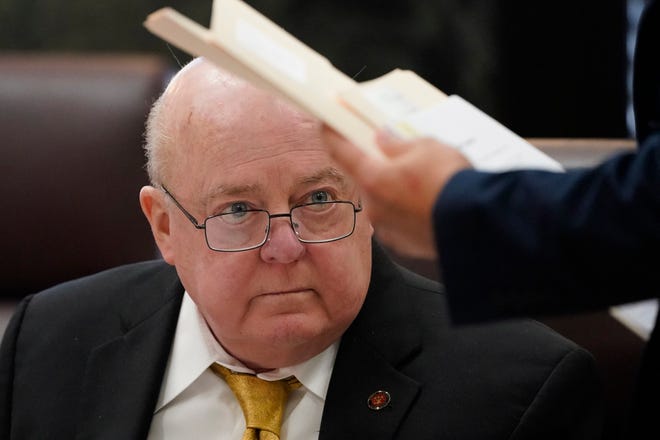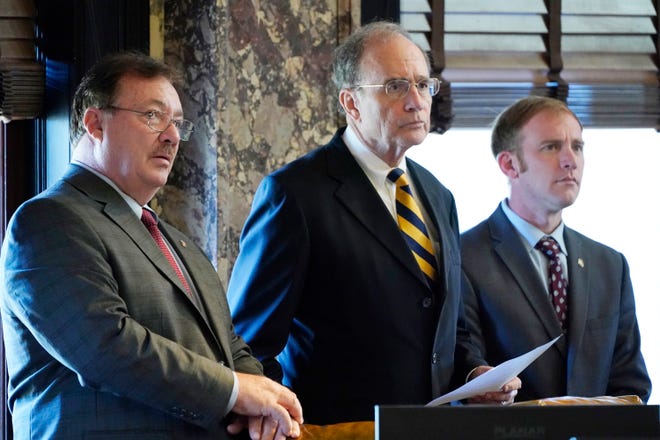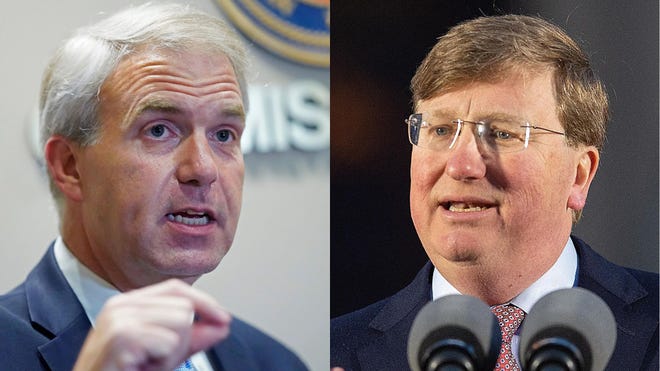
Mississippi voters will likely go yet another year without the ability to directly pass policies through ballot measures, after the state Senate failed to advance a bill to reinstate that process Thursday.
Senate Concurrent Resolution 533 passed the Senate earlier in session, only to be changed by the House. The Senate chose Thursday to neither concur with the House changes nor invite conference, with a deadline to do one or the either looming at the end of the day.
When the Senate adjourned minutes later, the ballot initiative’s fate was likely sealed, at least for this year. The bill is now dead.
Voters have not seen an initiative on their ballot since 2020, when they approved Initiative 65, a constitutional amendment to legalize medical Marijuana.
That vote sparked a court challenge, led by longtime Madison Mayor Mary Hawkins Butler, which sought to invalidate that initiative by challenging the validity of the entire initiative process. The law, they argued, was outdated because it required signatures to come in equal proportion from the state’s “five” congressional districts. Since 2000, the state has only had four districts, after losing one during redistricting following that year’s census. In May 2021, the Mississippi Supreme Court ruled with them, putting the state’s medical marijuana ambitions in what would ultimately be a temporary pause, but putting the ballot initiative process into a more lasting limbo.
The last two legislative sessions have seen a number of attempts to restore voters’ ability to directly pass legislation. Last year, members of the House passed a bill that would have largely kept the process the same as it was before, while updating the number of congressional districts. The Senate then made changes, substantially raising the bar for required signatures. The bill died.
This year, a bill originating in the Senate, which passed the chamber overwhelmingly, would have again dramatically increased the number of signatures needed to get an initiative on the ballot. Under the previous law, the number needed was about 110,000. The bill would increase that to almost a quarter of a million. Supporters of the bill said that would lessen the impacts of money from groups based outside Mississippi, while opponents said it would make it harder for voters to have a direct say in their governance.
Then, the House passed a version of the bill that again lowered the vote threshold. It also made other changes, though, including listing topics that cannot be addressed by ballot initiative. That list included abortion and government spending. It did not mention marijuana, the topic that led to the previous initiative law being struck down.
As the Thursday deadline approached, Sen. John Polk, R-Hattiesburg, and Lt. Gov. Delbert Hosemann, also a Republican, were noncommittal on whether the Senate would bring forward the House version for concurrence or to invite conference. On Wednesday, Polk told reporters that the lower threshold was not something he could support, while Hosemann said members of the chamber were making “good progress.” The lieutenant governor declined to elaborate on what progress looked like.

Shortly after the chamber declined to take action on the bill, Hosemann released a statement that seemed to indicate that there were not enough votes in the Senate Republican Caucus to support the lower signature threshold.
“I have consistently said I am in favor of an initiative process in Mississippi. I trust the voters of the state, both in who they elect to office and on policy matters,” Hosemann said. “A number of Republicans in the Senate have a different opinion on the initiative issue. This is the legislative process and we will continue that process.”

The initiative petition issue may well resurface during this year’s statewide elections. Democratic candidate for governor Brandon Presley quickly criticized Gov. Tate Reeves for not doing more to pressure the legislature into resurrecting it.
“Today is a huge setback for the right to vote and is a slap in the face to every citizen in this state. Make no mistake, Tate Reeves and his allies in the legislature didn’t lift a finger to restore Mississippians’ right to petition their government because the status quo gives them and their lobbyist pals more power. You can bet that if it were money for his personal trainer or a volleyball court for a friend, Tate Reeves would move mountains to make it happen,” Presley said in a statement. “No matter what party you are in, you should have the right to petition your government. As governor, I’ll lead the effort to restore the ballot initiative process that our state has had for decades so every Mississippian can have their voice heard.”

Reeves has said multiple times since restoration of the initiative was first considered last year that he is in favor of restoring it, but at a higher signature threshold than there was previously.
“I think that access to the ballot is important,” Reeves said leading up to the 2022 legislative session. “I don’t think that one person writing a $2 or $3 million check on any one issue to put it in our state constitution is the correct way to do it, but I do think the citizens should have access to the ballot, and it ought to be done in a way where it’s challenging to get on the ballot but that it is possible.”
As for Hosemann, his primary challenger state Sen. Chris McDaniel, R-Ellisville, voted for the original Senate version, with the higher threshold. No vote was taken in the Senate on the lower threshold proposal from the House.

